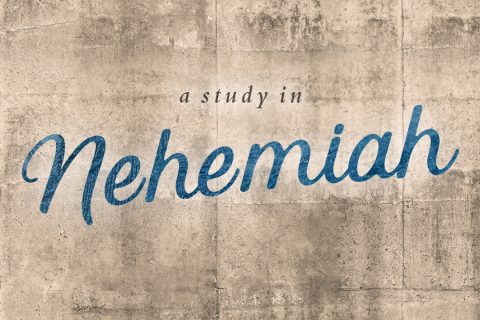
Return to the Homeland
By: Patty Nicholas-Boyte
“Now the city was large and spacious, but there were few people in it, and the houses had not yet been rebuilt. So my God put it into my heart to assemble the nobles, the officials and the common people for registration by families. I found the genealogical record of those who had been the first to return. This is what I found written there: These are the people of the province who came up from the captivity of the exiles whom Nebuchadnezzar king of Babylon had taken captive (they returned to Jerusalem and Judah, each to his own town” (Nehemiah 7:4-6)
“The priests, the Levites, the gatekeepers, the musicians and the temple servants, along with certain of the people and the rest of the Israelite’s, settled in their own towns” (Nehemiah 7: 73).
Chapter 7 is an interesting part of Nehemiah’s story and contains many verses of genealogy. A wall now protects God’s holy city and Nehemiah has set guards in place, yet the city remains virtually uninhabited. In order to rectify the problem, Nehemiah conducted a census of all who returned from exile and compared it to the records of those taken away.

Family groups, priests, gatekeepers, temple servants, and even gentiles grafted in to the faith are named in the passage. After seventy years of captivity, I wondered about those who were old enough to return to the land of their youth. Did they question if they would ever see their homeland again? Did they question God’s faithfulness or did they believe they would one day set foot on the Promised Land and worship in the temple of God as their ancestors did?
One other thing that struck me in the long list of names was God knew each person taken and who returned from their family. God kept the promises made years before. The listing of each name is the proof of his faithfulness.
In the uncertainty that we live in today, we can trust in God’s great character. If He was faithful then, He will be faithful today. As those who lived during the exile may have wondered where God was during the trials they endured at the hands of evil kings in an idolatrous pagan land, when they set foot in their long lost homeland, they were assured they were not forgotten.
We too can trust God sees the events of our day and has not forgotten us His children. He knows everything you are going through, and the promises He fulfilled for the ancient Israeli people, He will also fulfill in our day. He is faithful.
“You intended to harm me, but God intended it for good to accomplish what is now being done” (Genesis 50:20, NASB).
What can we learn from Nehemiah?
- God is trustworthy and faithful to His promises.
- Even though we may not “feel” God’s presence, He has not left us, nor has He forgotten us.
- God’s character never changes.
- Look for the good in the midst of the trial
While it is true, God returned His people to their homeland after a long exile, He never promised things would be easy. The Israelite people had a daunting task ahead of them. The project took obedience to God, a commitment of all to work together, and Godly leadership to rebuild the walls of protection around the Holy City. Then, they could begin the process to move into the promise.
What questions can we ask ourselves that can affect change?
- What promises of God have I either forgotten about or given up on seeing an outcome?
- How can I be the hands and feet of Jesus to someone who has given up hope?
- What “land “is God telling me it is time to return and re-occupy?
- Where has God sent me that I did not expect the task to be so daunting?
____________________________________________________________________________________________________
Click here for a schedule of seminar, concerts, and retreats at The Cove in beautiful Asheville, NC.
Are you a Christian church or non-profit ministry looking for a place to hold your conference, retreat or ministry event? Click here for more information on holding your event at The Cove.
Visit the Chatlos Memorial Chapel, Visitors Center, and Ruth’s Prayer Garden. Click here for directions and operating hours. Tours are free.
Follow us on social media. ![]()
